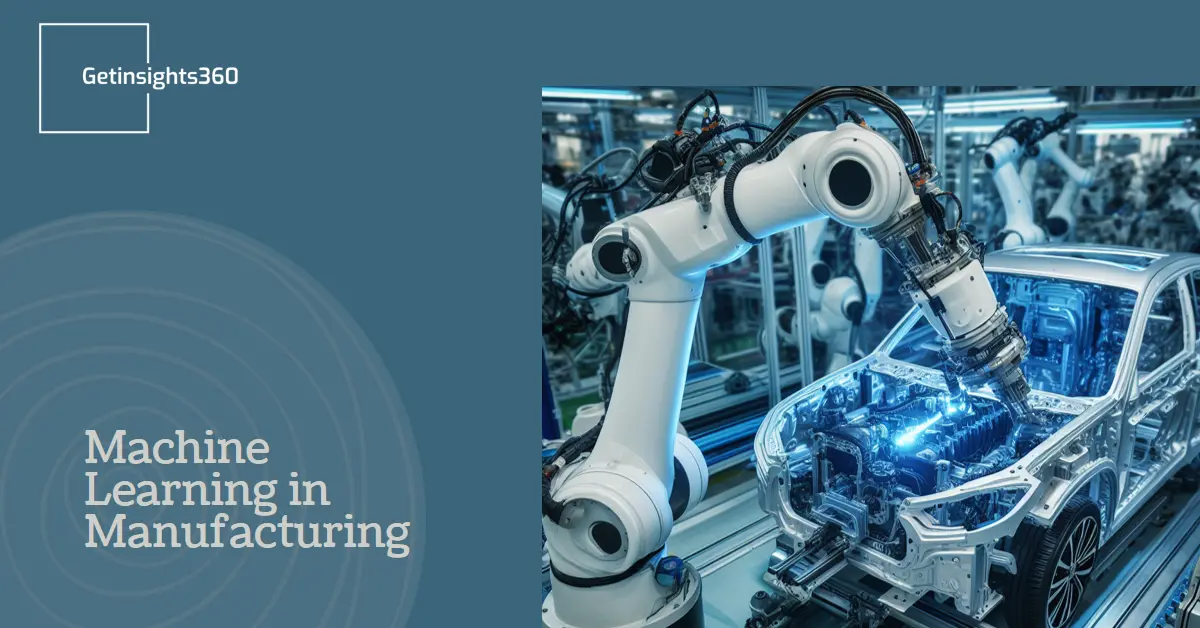Introduction
In the fast-paced world of manufacturing, an exciting revolution is underway, and its name is Machine Learning (ML). This cutting-edge technology is not just a buzzword; it’s a game-changer, bringing about unprecedented transformations in how goods are produced. In this blog, we’ll take a journey into the realm of machine learning applications in manufacturing, exploring the practical ways it’s reshaping the industry and unlocking new possibilities.
Understanding Machine Learning in Manufacturing
Machine learning, simply put, is a branch of artificial intelligence that enables computers to learn from data without explicit programming. In manufacturing, this translates to machines and systems becoming smarter over time as they analyze and adapt based on the information they receive.
Real-world Applications
Let’s dive into the tangible ways machine learning is making waves in the manufacturing sector.
Predictive Maintenance
Imagine a world where machines can predict when they’re about to fail and need maintenance. ML algorithms analyze historical data to forecast potential issues, allowing for proactive maintenance rather than reactive fixes. This not only reduces downtime but also extends the lifespan of equipment.
Siemens – Their AI-powered system identified and preemptively replaced a faulty compressor in a factory, saving them €7 million in potential downtime and repair costs.
Quality Control and Defect Detection
ML is playing a pivotal role in enhancing product quality. By analyzing data from sensors and cameras, systems can identify defects or deviations from the standard in real-time. This ensures that only top-notch products reach the market, maintaining customer satisfaction and reducing waste.
Unilever – They use ML to inspect millions of ice cream tubs daily, preventing even the tiniest ice cream imperfection from reaching your freezer.
Supply Chain Optimization
ML algorithms are transforming supply chain management by predicting demand, optimizing inventory levels, and improving logistics. This not only streamlines operations but also minimizes costs and enhances overall efficiency.
Boeing – Their ML system predicts airline parts demand based on aircraft maintenance schedules, ensuring critical parts are always available for on-time repairs.
Process Optimization
The ability of ML to analyze vast amounts of data quickly allows manufacturers to optimize production processes. This includes adjusting parameters in real-time to achieve maximum efficiency and energy savings.
Nestlé – In their coffee production, ML algorithms analyze real-time roasting data to ensure every cup reaches its ideal flavor profile, minimizing energy waste and human error.
Human-Machine Collaboration
Contrary to fears of machines replacing humans, ML is fostering collaboration. Workers can focus on tasks that require creativity and problem-solving, while machines handle repetitive or dangerous jobs. This not only improves job satisfaction but also enhances overall productivity.
Ford – Their “Cobot” robots work alongside human teammates on assembly lines, assisting with heavy lifting and repetitive tasks, while humans focus on quality control and complex assembly steps.
Benefits of Machine Learning in Manufacturing
The integration of machine learning brings forth a myriad of advantages for manufacturers:

Increased Efficiency
ML algorithms optimize processes, leading to increased efficiency in production. This, in turn, reduces costs and enhances overall productivity.
Cost Savings
Predictive maintenance and optimized supply chains result in significant cost savings. By preventing breakdowns and minimizing waste, manufacturers can allocate resources more effectively.
Improved Quality
The ability to detect defects in real-time ensures that only high-quality products reach consumers. This not only enhances the brand’s reputation but also reduces returns and associated costs.
Adaptability to Market Changes
ML enables manufacturers to adapt quickly to changing market conditions. By analyzing market trends and consumer behavior, businesses can stay ahead of the curve and make informed decisions.
Challenges and Solutions
While the benefits are evident, it’s essential to acknowledge the challenges that come with implementing machine learning in manufacturing:
Data Security and Privacy Concerns
The vast amounts of data involved raise concerns about security and privacy. Manufacturers need robust systems to safeguard sensitive information and comply with data protection regulations.
Initial Implementation Costs
Integrating machine learning systems can be costly initially. However, the long-term benefits often outweigh the upfront investment. Governments and industry bodies can play a role in providing incentives or support for adoption.
Skills Gap
There is a growing demand for skilled professionals who can develop, implement, and maintain machine learning systems. Addressing this skills gap through education and training programs is crucial for widespread adoption.
Conclusion
In conclusion, machine learning is not just a technological trend; it’s a fundamental shift in how manufacturing operates. The applications we’ve explored, from predictive maintenance to supply chain optimization, showcase the vast potential of this transformative technology. As manufacturers continue to embrace machine learning, we can expect even more innovative solutions and a future where efficiency, quality, and adaptability reign supreme. The journey has just begun, and the future of manufacturing looks brighter than ever with the power of machine learning at its core.
